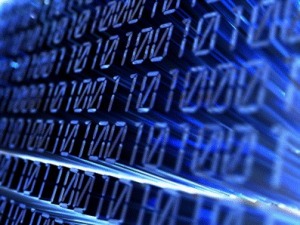by
Brendon Nafziger, DOTmed News Associate Editor | February 18, 2010

Australia takes steps
toward health identifier
Australians are set to get a health ID number, laying the groundwork for a national electronic health records system.
Introduced by Prime Minister Kevin Rudd's Labor government February 10, the legislation calls for all Australian residents to receive a special 16-digit code, called an Individual Healthcare Identifier (IHI).
The number, while mandatory, will not be linked with any health records. If electronic health records do become national, they will be purely voluntary, the government insists. But the obligatory code will be associated with the patient's name, date of birth and sex. In some cases, it could list address, birth order or aliases to prevent confusion.




Ad Statistics
Times Displayed: 30157
Times Visited: 744 Stay up to date with the latest training to fix, troubleshoot, and maintain your critical care devices. GE HealthCare offers multiple training formats to empower teams and expand knowledge, saving you time and money
The plan, which goes into effect July 1, calls for the creation of three separate sets of unique identifying codes, with the IHI given to patients, another to doctors and health workers, and another to hospitals or clinics.
Currently in Australia, a patient has several identifying codes, with the doctor's office, the pharmacy and the laboratory which analyzes the patient's blood all using different numbers for the same patient.
The Australian government claims this mess of codes leads to confusion, which can lead to costly, and deadly, mistakes. By melting down the various sets of numbers to one, the government believes the program can help stop the dangerous mismatching of patient records and cut down on medical errors, one-fifth of which they say are caused by staff lacking correct patient information.
FREE SPIRITS
Still, the main aim is to develop the infrastructure necessary to set up a truly national health record system. By building the groundwork now, the government's Department of Health and Aging hopes to prevent what its website calls a "rail gauge" problem from scuttling the program later on.
But Australians have not proven especially welcoming to sweeping national ID systems in the past. A 1987 measure to introduce a national ID card went down in flames because of widespread popular opposition.
Worries about keeping confidential medical information safe and secure gnaw at the current program. For instance, the government says the health ID number can only be accessed by proper health workers looking to manage the patient's health care or undertaking approved clinical research. The ID won't be available for employers or insurance companies.
But it's not clear how the government plans to limit access. The Daily Telegraph, an Australian paper, reports that the government hasn't said how it would ensure someone trying to get hold of a health ID number was actually a qualified health professional trying to treat the patient.
Nonetheless, the government does acknowledge privacy fears. It has said some people, such as victims of domestic abuse or celebrities fearing stalkers, might be able to use a pseudonym with the number to protect their identities and whereabouts, according to the Telegraph.

